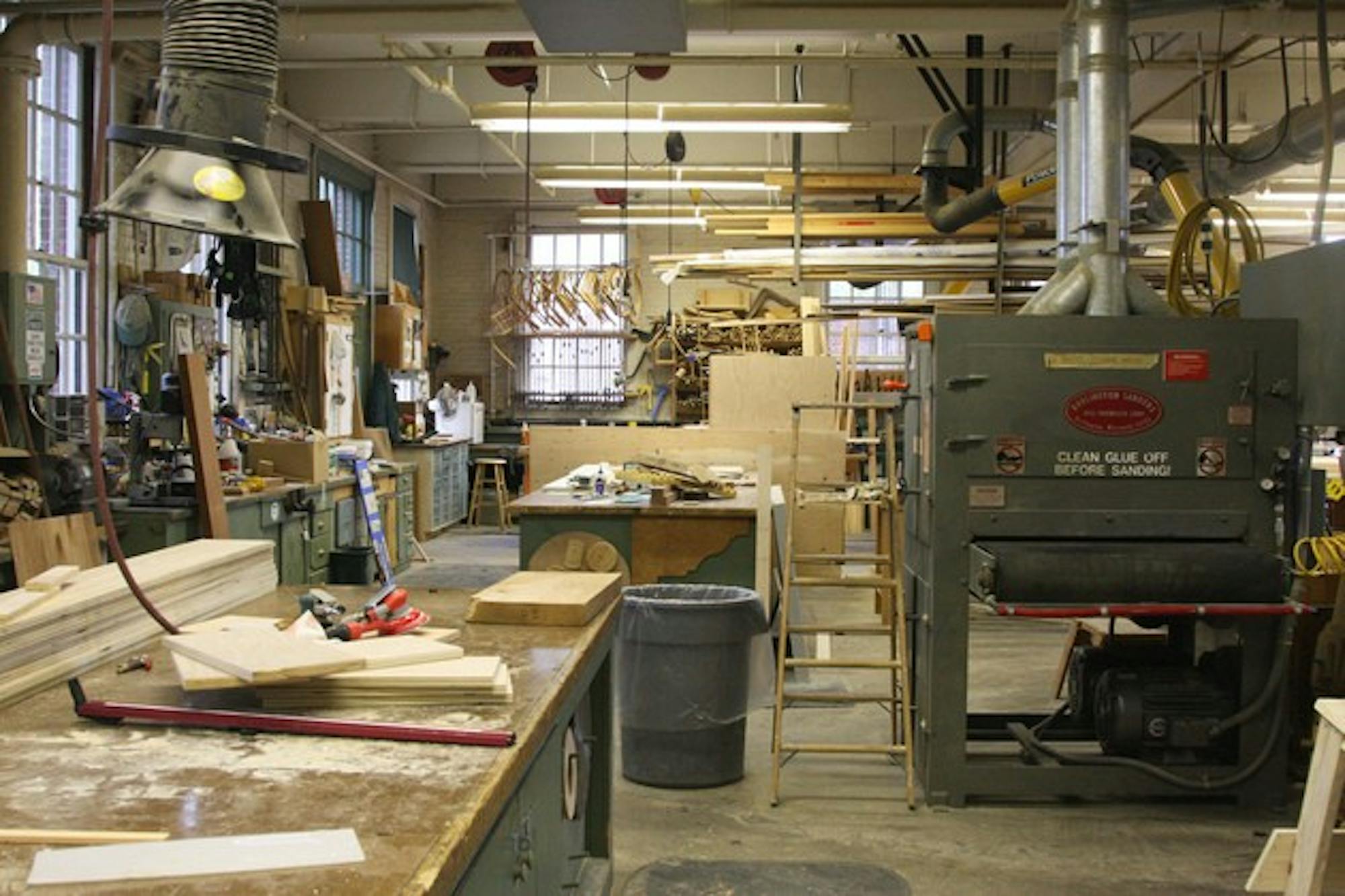A woman at the Canoe Club paged Jeff Johnson, one of the shop's two lead men, during a recent interview with The Dartmouth. She requested that he send a carpenter to remove a door from the restaurant's attic.
"Every day they scream...every day, all day. No, it isn't as bad as that, but you do get calls every day," Johnson, who has been working at the shop for the past 11 years, said after receiving the page. "Normally we do all College work or Dartmouth rental housing's work; it all has to do with Dartmouth in one way or another."
Johnson said his work repairing items in the residence halls has helped him to pick up on a few interesting student behavioral patterns.
"When students are going through finals, we tend to see an increase in furniture problems," Johnson said. "I know sometimes it's because of frustration."
The tasks carpenters do on a day-to-day basis have changed dramatically over the past ten years, according to 25-year employee Gene Dinsmore, the carpentry shop's current supervisor.
"We used to do a lot of project-type work, like go in and remodel some of the [College-owned] apartments, but now we do smaller jobs, like picture hanging," Dinsmore said. "The bigger stuff goes out to contractors now just because the campus has grown so much."
Rather than taking on tasks like building residence halls, the carpentry shop does small repairs on moldings, woodworking, casing and window fixing in Dartmouth's existing residence halls, Director of Operations Frank Roberts said. Often, this means the shop's staff must tap into their creativity to accomplish a task, he added.
To repair a broken window, for example, carpenters must make windows from scratch rather than buying prefabricated windows, Roberts said.
"The role of the shop hasn't changed," Roberts said. "It's just the projects that need to be done in the residence halls. When you look at the renovations we used to do in the summer, they were much more minor in scale."
Despite the change in their responsibilities, carpenters at the College continue to ensure that the facilities students use on a daily basis are functioning properly. Plumbers often call the carpentry office because they need a wall taken down so they can install new air conditioning units, Johnson said. Carpenters may also be asked to design personalized desks for the College's secretaries, he added.
This summer, carpenters are renovating the round part of Rollins Chapel's roof. Although at times, the shop's 14 carpenters are asked to design moldings for wall features or craft doors for the Dartmouth Outing Club House on Occum Pond, many of the staff's tasks do not require complex craftsmanship, Johnson said.
"Most of the time, a good share of us feel that we're more of maintenance men than we are carpenters," Johnson said. "Some of us don't get to show our skills as much as we'd like to."
Johnson is one of the two masters in the shop, meaning he gets to do more high-quality work, he said. The other master is scheduled to retire soon, Johnson added, explaining one of the other carpenters will likely be promoted in the near future.
McKenzie Hall is home to more than the carpenters, according to Dinsmore. Plumbers, locksmiths, a roof crew, a glassman (who repairs minor broken glass around campus) and a mason (who repairs broken steps or damaged stone walls) also work out of the building.




